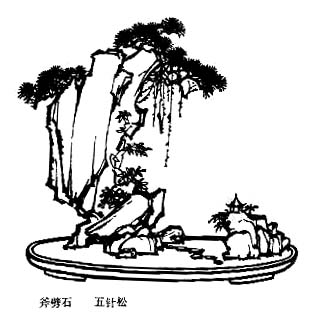詩
經
Shi Jing 
 – The Book of Odes
– The Book of Odes
The oldest collection of Chinese poetry, more than three hundred songs, odes and hymns. Tr. Legge (en) and Granet (fr, incomplete).
Shijing I. 2. (17)
Wet lay the dew on the path : –
Might I not [have walked there] in the early dawn ?
But I said there was [too] much dew on the path.
Who can say the sparrow has no horn ?
How else can it bore through my house ?
Who can say that you did not get me betrothed ?
How else could you have urged on this trial ?
But though you have forced me to trial,
Your ceremonies for betrothal were not sufficient.
Who can say that the rat has no molar teeth ?
How else could it bore through my wall ?
Who can say that you did not get me betrothed ?
How else could you have urged on this trial ?
But though you have forced me to trial,
I will still not follow you.
Legge 17
(le garçon) — Les chemins ont de la rosée :
Pourquoi donc ni matin ni soir ?
(la fille) — Les chemins ont trop de rosée !
(le garçon) — Qui dit qu'un moineau est sans bec ?
Comment percerait-il mon toit ?
Qui dit que tu es sans mari ?
Comment t'en prendrais-tu à moi ?
(la fille) — Bien que tu t'en prennes à moi,
Le mariage n'est point fait !
(le garçon) — Qui dit, qu'un rat n'a pas de dents ?
Comment percerait-il mon mur ?
Qui dit que tu es sans mari ?
Comment t'en prendrais-tu à moi ?
(la fille) — Bien que tu t'en prennes à moi,
Quand même je ne te suis pas !
Granet XI.

The Book of Odes – Shi Jing I. 2. (17) – Chinese on/off – Français/English
Alias Shijing, Shi Jing, Book of Odes, Book of Songs, Classic of Odes, Classic of
Poetry, Livre des Odes, Canon des Poèmes.
The Book of Odes, The Analects, Great Learning, Doctrine of the Mean, Three-characters book, The Book of Changes, The Way and its Power, 300 Tang Poems, The Art of War, Thirty-Six Strategies
Welcome, help, notes, introduction, table.
Index – Contact – Top
